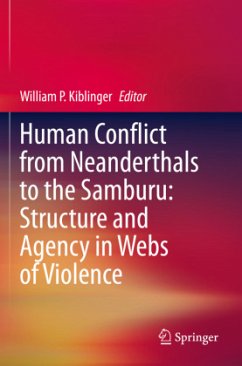This book examines human conflict throughout history, the reasons behind the struggles, and why it persists. The volume delves into the causes of human conflict and what can be done about them. Based on detailed descriptions that support insightful interpretations, the book explores significant historical events in the course of human history.
By pursuing a "web of violence" approach, it raises and answers questions about the sources of conflict and how it may or may not be resolved through investigations into human agency and practice. It evaluates lessons learned concerning human conflict, violence, and warfare. To illustrate these lessons, the book presents a broad geographical and temporal set of data, including research on the time of Neanderthals in Europe (20-30 thousand years ago); the Late Neolithic civilization on the Mediterranean (6-8 thousand years ago); medieval Ireland; contemporary history of the Western Dani peoples of West Papua; and, finally,recent issues in Brazil, Congo, and Kenya.
By pursuing a "web of violence" approach, it raises and answers questions about the sources of conflict and how it may or may not be resolved through investigations into human agency and practice. It evaluates lessons learned concerning human conflict, violence, and warfare. To illustrate these lessons, the book presents a broad geographical and temporal set of data, including research on the time of Neanderthals in Europe (20-30 thousand years ago); the Late Neolithic civilization on the Mediterranean (6-8 thousand years ago); medieval Ireland; contemporary history of the Western Dani peoples of West Papua; and, finally,recent issues in Brazil, Congo, and Kenya.








